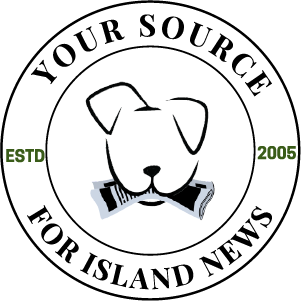The Charleston County Council approved a transportation sales and use tax referendum to appear on ballots in Charleston County this November. The proposed referendum would provide $5.4 billion for road projects throughout the county.
The Mark Clark Expressway extension from West Ashley through James Island and Johns Island is listed as the top priority project, expected to cost $1.8 billion, plus an additional $648 million for financing, for a total of $2.4 billion.
The County Council vote took place on Tuesday, July 23—the third and final vote. The outcome was 6-2 in favor of the half-cent sales tax increase to fund the extension.
Charleston County Council member Larry Kobrovsky, who represents District 2, voted against the referendum.
“With this referendum vote, we have an awesome responsibility to address transportation needs now and for the next 25 years in Charleston County,” Kobrovsky said.
A self-described financial conservative and conservationist, Kobrovsky explained that his decision to vote no was based on the referendum’s failure to address the transportation needs of all of Charleston County.
“Half of the budget—approximately $2.5 billion—is going to one project: the 9 miles of road that make up the I-526 extension,” Kobrovsky said.
He explained that the referendum includes 13 other smaller transportation projects throughout the county that also deserve priority. The main issue: there is no way to guarantee the other projects will get done in the case of cost overruns with the extension project.
“The entire budget could go to that one project,” Kobrovsky said. “There are nine County Council districts, and projects should be divided equitably to address all needs.”
He noted that interstates are typically built by the state, but this referendum is being financed by Charleston County.
“It’s a huge distinction—the interstate is never built with county money,” Kobrovsky said. “The state has only earmarked $420 million for it, and any additional cost overruns will come out of county taxpayers' pockets. That should scare everybody.”
Another issue Kobrovsky has with the referendum is its failure to deter land development, which negatively affects traffic in Charleston County.
“I feel we need to look ahead and be responsible. This referendum calls for a tremendous reduction in funding for green space,” he said. “I’d like to see an increase in green space funding to help reduce transportation in northern Mount Pleasant—to buy land and preserve it from overdevelopment. It’s starting to feel like we are living in suburban Atlanta or Charlotte, not Charleston.”
Kobrovsky noted that this vote plays on Charleston County residents’ emotions regarding increasing traffic.
“The extension won’t be built for at least a decade. People react emotionally when they are stuck in traffic, but the extension is only going to bring more development,” he said.
Additionally, Kobrovsky pointed out that the referendum fails to address rising sea levels and coastal flooding.
“This is an opportunity for us to pause and say no, to come back with something more evenly distributed and better designed to address coastal flooding,” Kobrovsky said.



